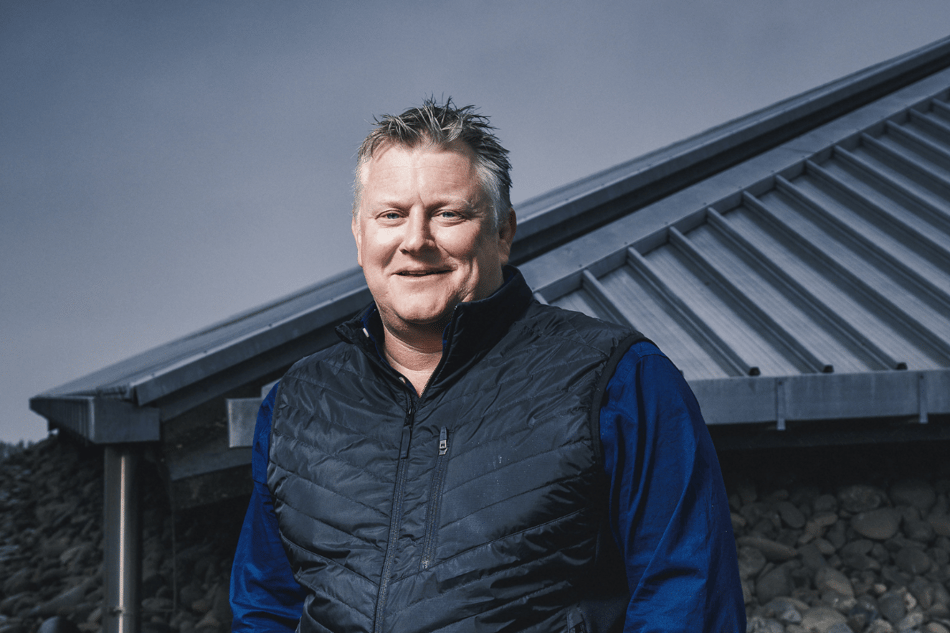Duncan McFarlane on tariffs, imposter syndrome and why he said yes to the Icehouse board


Indevin Group founder Duncan McFarlane credits the Icehouse as being foundational to his success not simply his business success but also the ability to scale himself at the same pace as the Group, now New Zealand's largest wine business.
You signed up to the Owner Manager Programme in 2008, why?
Greg Tomlinson invested in the Indevin business in 2006 and one of the first things he said to me was I should go and do the Icehouse. Greg was Icehouse alumni and said he had benefitted from it and wanted me to get those same benefits.
Had you had any management training?
None. I’d learnt on the job since I left school. I did have a three-day certificate in canning from Massey University in the early 90’s but other than that, nothing.
Did you have any hesitations going into the Programme?
100 per cent. I was questioning whether I was at “that” level. Was I worthy of doing that kind of thing? I had those doubts, slash fears but when we kicked into the Programme, I discovered it was quite different to what I had expected. It was practical and basically designed for people running simple businesses to be able to upskill themselves and be ready to grow with their business.
What were some of the immediate benefits?
About halfway through the 5-month programme I had a lightbulb moment. We’d been told to expect that, it comes at different times for different people they said, but for me it was about Block 3. I suddenly realized I was the problem in the business.
At the time Indevin was in a fortunate position because our challenge was all about growth and how to manage and execute that growth – we actually had no lack of opportunity. Our challenge was how to scale, how to build the capability for that scale across the processing, the systems and the team. But our wheels were spinning, and I was frustrated at the lack of progress.
We had been operating on brute force and it’s amazing what you can achieve when you are a determined small team but once you scale to a certain point you have got to get out of the way if you want continued growth.
Brute force had to give way to building capability in the team and that’s where the real shift in scale started for us. I had to reinvent myself, so I wasn’t holding up the business growth.
It was a turbulent time when you went into the Icehouse in 2008, how did the GFC impact the experience?
We were right in the thick of the GFC when I was on the Programme - Lehman Brothers had just tanked.
It was a painful time for the wine industry with an oversupply and prices collapsing. We were able to adjust our business model, overcome those roadblocks and prove to the bank, shareholders and customers that we could scale up. In 2010 the Pernod Ricard transaction came along, and we had the confidence to say let’s have a crack at this.
Virtually everybody in my Icehouse group made it through the GFC and the power of that network has continued to be strong today.
What are you most proud of when you reflect on the past 20 years of Indevin?
The calibre and the capability of the team that we’ve built and that we’ve been able to attract and hold onto the right level of talent.
For me personally, being able to scale myself up was an achievement. When I started in the Icehouse we were a small business with significant growth opportunities and now Indevin Group represents roughly 20% of the New Zealand wine industry. It’s not an easy thing for the same type of person to manage a business at those different levels. What is required is light years apart. If I hadn’t done the Icehouse Owner Manager Programme I wouldn’t have had the self reflection and skills to scale like that so I’m grateful to Greg for his wisdom to make the recommendation.
When business owners ask you for advice on how to grow, what do you say?
I normally start with how how clear is your strategy – could you send it to me on one page? If they can’t then I’ll always recommend that’s the first thing to do. Get very clear on what you want to achieve and be realistic about how you’re going to do it. I know it seems obvious but there’s a lot of businesses that don’t do that. It’s the classic “If you don’t know where you are going, any road will take you there”
Why did you say yes to joining the Icehouse board?
First and foremost, I credit the Icehouse with building the foundations for my success, so I want to help strengthen the organisation and help take it forward. If it means that other practical, hands-on business owners like me can get the same benefits, then I think that’s extremely important.
Secondly, being involved with the Icehouse means exposure to industries and knowledge I wouldn’t normally be involved with, and I want to keep learning!
What effect do you see US tariffs having on the NZ wine industry?
I don’t see it materially changing strategy, it’s just going to slow down the rate of market recovery and growth. It’s certainly not going to make things easier. For the industry, it’s the worst possible news because in the last 15 years, the majority of growth has come from the US and our main competition in the market is US domestic wine companies.



